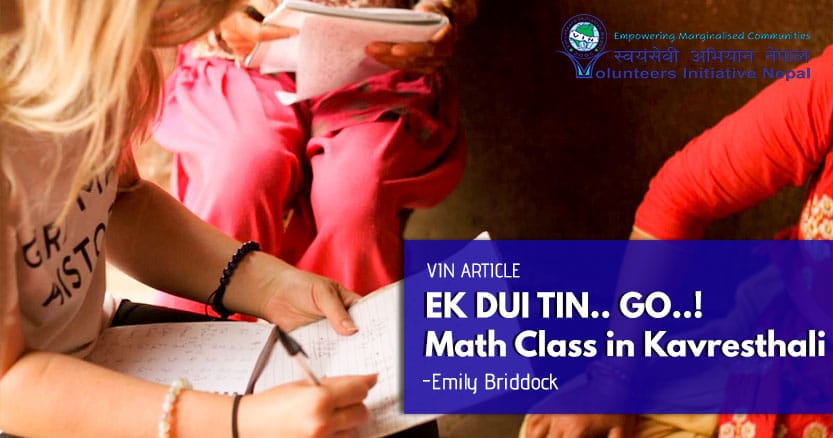Maths Class in Kavresthali
Maths was a subject you either loved or loathed at school – because really, what were we supposed to do with Pythagoras’ theorem outside of a classroom? As a twenty-two-year-old history graduate, I never thought I’d be wracking my brain to try and remember how to explain carryovers or basic subtraction. It comes naturally when you work it out for yourself (or with a calculator, oops), but trying to teach basic sums to people who don’t know how to count from one to ten, and in another language at that, is a pretty difficult task.
I taught (albeit myself first) Nepali maths to a small group of women in Kavresthali, just outside the home of one of the class members. Pramila had lost her previous house, a gorgeous two-story, in the 2015 earthquake that had devastated the homes and lives of millions in Nepal. Consequently, her current living situation was less than ideal; the new house consisted of only one room, an outside toilet and kitchen, and a small shack for two cows and some chickens. What should have been a short-term housing solution was now home to five fully grown family members. It was a testament to the misfortunes of the country, as you realized just how many were still feeling the economic aftershocks of the earthquake that happened four years ago.
She told me that at thirteen she was married, had left school, and had been working in the domestic sphere ever since. She didn’t know how to write numbers, nor did she understand what they meant. By the time I arrived, she had already spent some time learning how to write and was now practicing basic arithmetic. The previous volunteer remarked on how much progress she had made in such a short space of time – from not having picked up a pencil in over fifteen years, to solving triple digit addition and subtraction questions in just six weeks.
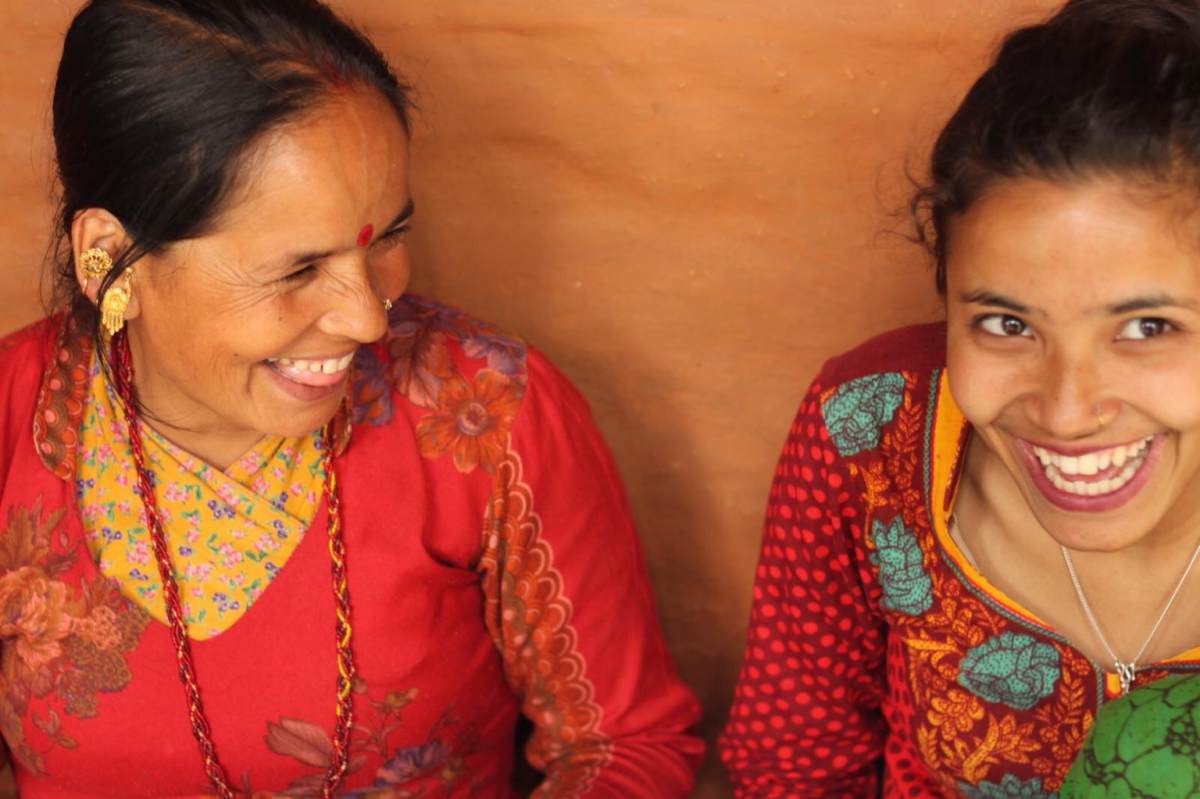
Pramila wasn’t the only one in the group with such dedication and desire to learn. An older lady was just starting to trace numbers, and did this for over an hour everyday. Her eyesight was poor and progress was slow, but it was there. She came to class with a smile on her face and proudly handed over her homework, which was always done beautifully. Maybe others would be deterred at being the weakest member of the group. In fact, in many of my childhood classrooms, students often simply gave up at the first sight of struggle or an incorrect answer, but not here. She never missed a lesson, never missed a homework, and never went without a proud smile at her own success.
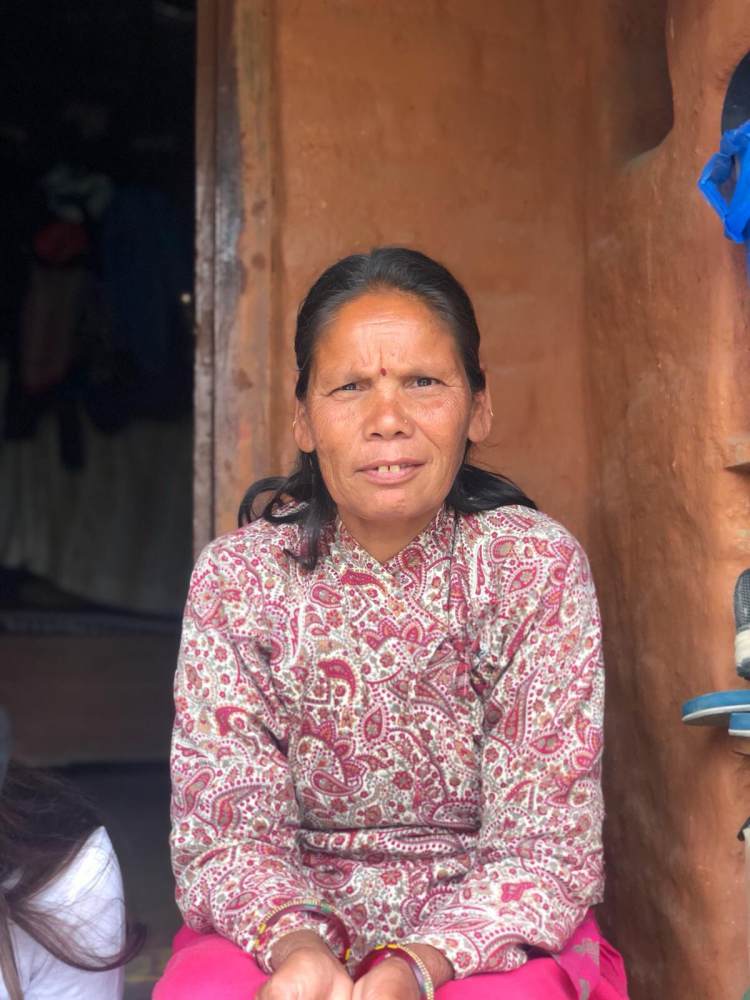
There were other women involved, dropping by a couple of times a week to learn basic maths. They often hinted at their desire to learn English too, but were quite content with Nepali numbers for now. These women were so enraptured in the subject and their confidence blossomed with every sum; it was a welcomed sight to someone who often doubted whether they were really making a difference in the community. My time with them was split into introducing new concepts of basic maths to improve their learning, and repeating familiar sums so they could gain much needed confidence in their abilities. Maths was more than a subject I begrudgingly learnt at school. It was an hour of laughter, of wrong answers and right ones, of tea and biscuits in the afternoon sun, of learning how to communicate when neither of you could understand the other person’s language; it was education in its purest form.
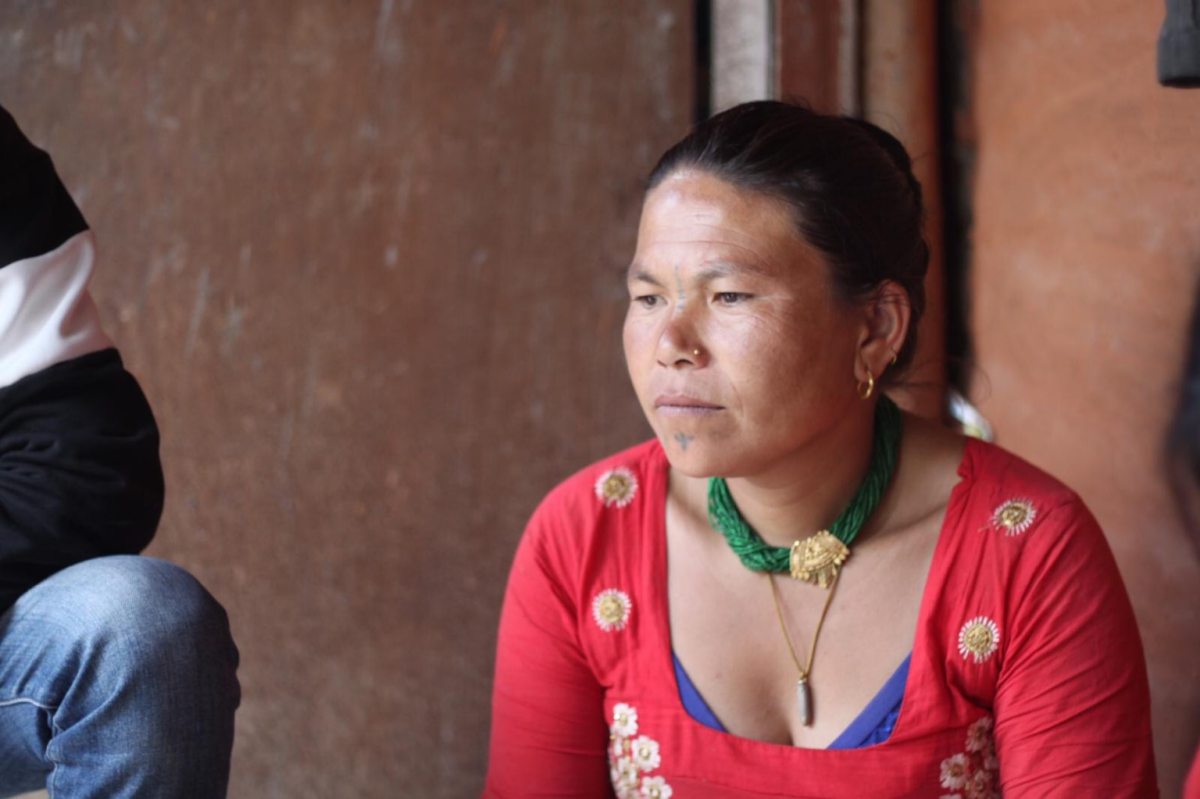
Perhaps the biggest lesson I learnt during my time in Kavresthali was to never take my education for granted. I feel so grateful for having the opportunity to study for as long as I did, and so inspired to keep studying. These women have taught me that it’s never too late to start learning. Forty is not too late to learn addition and subtraction. Fifty is not too late to learn how to write the numbers from one to ten. In some ways, it’s heartbreaking to think that this small landlocked country has had patriarchal thinking so engrained within it that it has let down an entire generation of women. It has force-fed them the idea that, as the domestic sex, their education is not as important as their marriage. Yet, this small group of rural women have decided that their education is important after all. Their learning is important – it is more than that; it is empowering. The fact that these women have come together, irrespective of their ages, to learn primary school level mathematics, is inspiring.
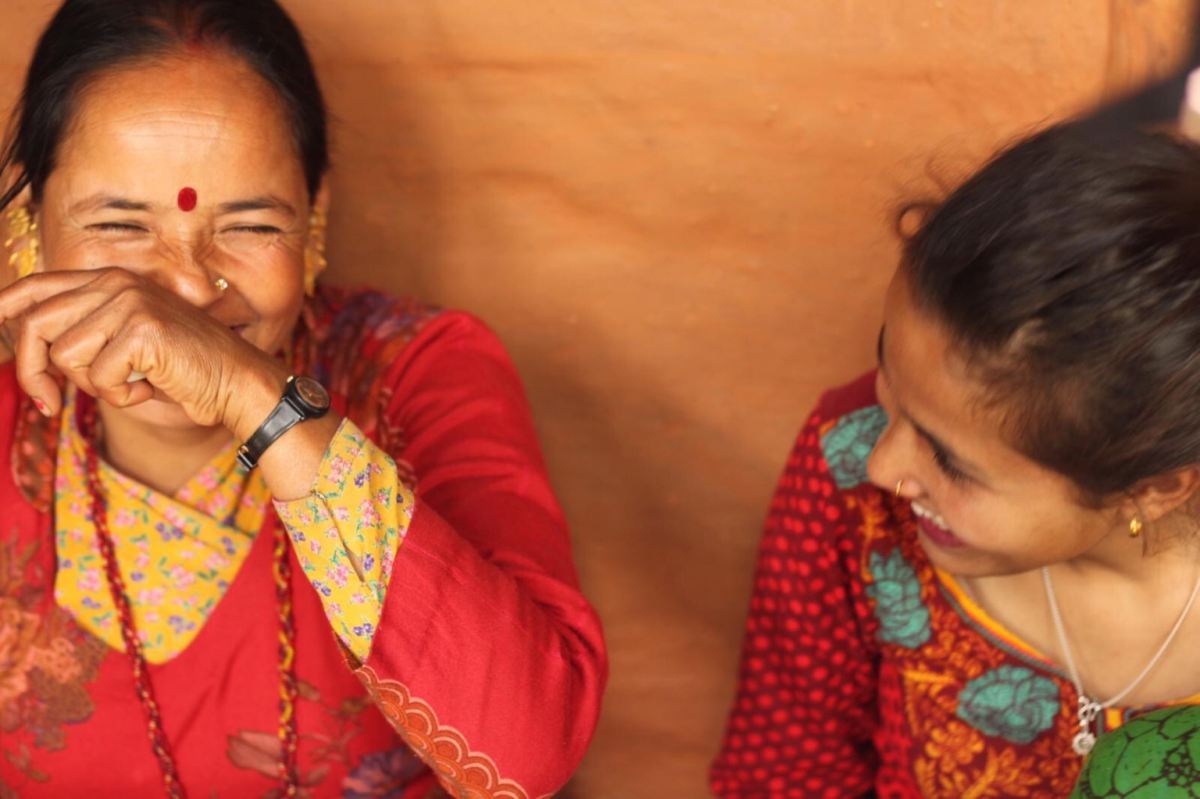
This is how we empower women. We put a pencil in their hand, teach them how to use it, and watch them grow. Maybe domestic village women don’t need to know how to add three digit figures, and maybe it doesn’t make their days spent in the fields any easier. It won’t make their incomes grow, or bring back their collapsed two story house, but, for one hour a day on a little concrete porch, it’s the most important thing in the world. It’s the most important thing for the world.
Words by Emily Briddock
Photos by Mahe Cayvela

